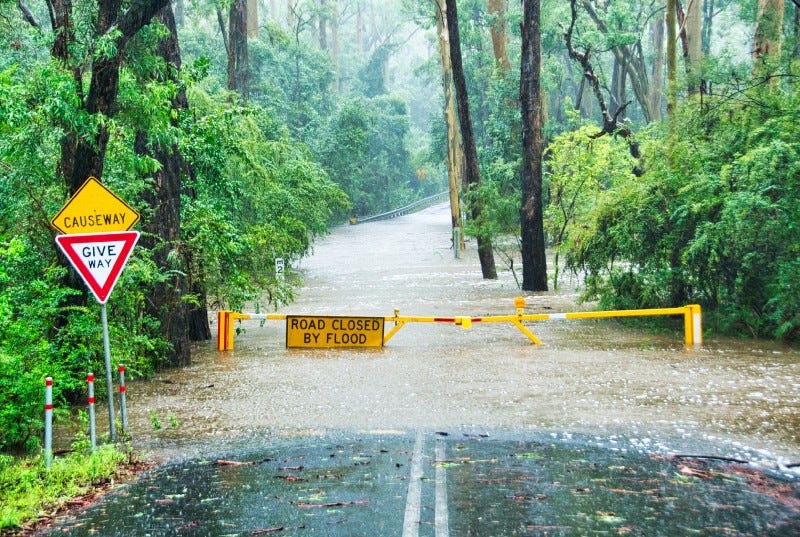Planet Week: Australia underwater
Welcome to Planet Week, where we highlight the last week of environmental news and what it means for our Planet.
Welcome to Planet Week, where we highlight the last week of environmental news and what it means for our Planet.
Last week, extreme weather again battered the Southeastern United States. U.S. Senators came closer to overturning Trump’s methane rollbacks. And a new report found that banks have invested trillions into fossil fuels, since 2016.
In case you missed it, here’s what else happened around the Planet:
Sunday, March 21
Australia underwater
Heavy rains flooded Australia’s New South Wales early last week, forcing the evacuation of 18,000 people. Officials are calling it the worst flooding since the 1960s, with at least 38 disaster areas declared and 19 evacuation orders issued. Some areas saw 35 inches over just a few days.
Experts warn that climate change increases the likelihood of these extreme weather events. Now, climate impacts are converging over Eastern Australia — the same communities that are experiencing flooding are still recovering from record bushfires and droughts last year.
“I don’t know any time in state history where we have had these extreme weather conditions in such quick succession in the middle of a pandemic,” NSW Premier Gladys Berejiklian told reporters. BBC News has more.
Monday, March 22
Corporate climate pledges fall short
On Monday, an investor initiative called Climate Action 100+, which manages $54 trillion in assets, released a Net-Zero Company Benchmark for some of the top-emitting companies worldwide.
The group found that many of these companies had a long way to go to meet their climate pledges — only about half the companies reviewed had net-zero pledges, but half those commitments failed to encompass the full scope of their emissions.
“[T]he Net Zero Company Benchmark shows that many companies have set out a clear ambition to deliver on net zero targets,” Stephanie Maier, a Climate Action 100+ Steering Committee member, said in a statement. “Investors now have a responsibility to engage with firms to help them deliver and meet the expectations of policymakers and society at large.” Read more at Grist.

Tuesday, March 23
Biden’s next move: Infrastructure
With one major stimulus bill under his belt, Biden is turning his attention to American infrastructure, aiming to reduce carbon emissions, cut economic inequality, and boost the economy as part of his “Build Back Better” plan.
The package will likely include two bills costing between $3 and $4 trillion altogether, reports The New York Times. The first bill will focus on physical infrastructure — namely, repairing the country’s roads and investing heavily in clean energy, jobs training, and energy-efficient housing. The second bill will reinforce “human infrastructure,” funding, for example, free community college and universal prekindergarten.
The Washington Post breaks down why this proposal (and its success) could define Biden’s presidency. And in Planet Days, we discussed what it could mean for American climate action.
What a clogged Suez Canal means for oil
A really big boat is stuck in Egypt’s Suez Canal. Late Tuesday, high winds and poor visibility caused the Ever Given, a massive container ship, to run aground in the Suez Canal.
Besides being the subject of countless Twitter memes, the Ever Given could also send waves across the global oil market. Reuters reported that oil prices jumped 4% on Friday, as investors worry the Suez Canal, which accounts for 30% of global container shipping volumes, could be blocked for weeks.
But it may not be that big of a deal in the long run. The New York Times reports that the tankers held up have just 8.8 million barrels of crude oil, a little less than one-tenth of a day’s global consumption. In general, Big Oil is shrugging it off as an inconvenience, more occupied with larger concerns, such as a slow economic recovery from the pandemic.
Wednesday, March 24
Soil won’t make up for increased emissions
New research suggests we may have overestimated the carbon storage potential of soils, putting a wrench in one common climate-denier trope: that rising carbon dioxide levels are actually good because they help plants grow.
Increased CO2 does encourage steady (not increased) plant growth, but it also decreases soil’s capacity to hold carbon — meaning our rising emissions are ruining a potential climate solution. The findings are significant because dirt currently stores about three times as much organic carbon as that in living plants and double that in the atmosphere. Earther has the full story.
Thursday, March 25
Both African elephants endangered
For the first time, conservationists are looking at the African elephant as two separate species — the savannah and the forest elephant — and according to a new analysis, both species’ survivals look grim.
On Thursday, the International Union for Conservation of Nature listed the savannah elephant as endangered and the forest elephant as critically endangered, one step removed from extinction in the wild. Poaching, ivory trafficking, and habitat loss are all driving this disturbing trend.
The new groupings show the varying degrees of challenges facing elephants while stressing the need for different recoveries for different species. Read more in National Geographic.
Friday, March 26
A win for the carbon tax
Carbon pricing, a market-based approach to reducing emissions, got a huge boost Friday. Canada’s Supreme Court ruled 6–3 in favor of Ottawa’s national mandate for carbon pricing, a move that allows the federal government to put a price on carbon in all its territories and provinces.
Writing for the majority, Chief Justice Richard Wagner defended the ruling by citing the Constitution’s “peace, order and good government” clause, which grants Ottawa authority to deal with issues that concern the entire country. CBC has more.
South of Canada’s border also saw some promising news for the carbon tax: As part of its new climate action platform, the American Petroleum Institute endorsed carbon pricing, reports The Wall Street Journal.
Bonus
Good news for gray wolves
The Mexican gray wolf is the rarest subspecies of gray wolf in North America, due to historic overhunting up until the 1970s. But conservation efforts are bringing renewed hope for the species — populations increased for the fifth consecutive year in 2020, with a 14% boost overall. Read more in the Arizona Republic.
See you next week.
— Brandon and Sam






